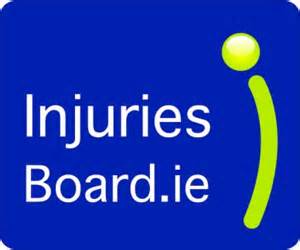Seven changes proposed to the Injuries Board system.
Since we wrote the book back in 2012, the Injuries Board is now seeking to change some of the rules they operate under by lobbying to amend the legislation. These changes will affect you in how you bring your claim.
The Bill is only in the early stages and may not be passed in the near future. However, it is important to know what is the situation and how it can affect your claim. It sounds like a Bill that would be passed in the Dail in a hurry without too much examination.
Let’s look at them.
- You can now lodge a claim and then send in the medical report after. Up to this, you had to make sure you had the €45 fee, the application form and the medical all sent in within a two year time period. Now, because this created some problems, even if the medical is sent outside the time period, the two years will not stop a genuine claim.
It appeared situations arose where somebody is lodging a claim at the last minute, having realised that their claim is barred after two years, and where they fill in the form and send it in, they may not be able to get their medical injuries in a report at such short notice. It was thought unfair that this happened, and now the amendment is proposed that once the application is in, the medical can come in within a reasonable time after that.
- The Defendant or the Insurance Company representing them will not need to agree to let the Injuries Board deal with the claim. Up to this, it was sent to them by the Injuries Board and asks if they agree to the assessment or not. It now seems it will be compulsory for the Defendant or the insurance company to deal with it. In reality, most insurance companies want the Injuries Board to deal with it. At present they have 90 days to assess what the claim is about and very often some insurance companies are on the phone trying to settle the case even though it is too early, depending on the injuries which are suffered.
- The Injuries Board won’t need to say why they won’t assess a claim. There was one area where they can’t find a Defendant and where they couldn’t reject a claim. It wasn’t a reason to reject a claim, up to now. Now, it will be.
- There is a proposal to charge a different level of fees. This will affect Defendants and particularly insurance companies. Insurance companies complain that they are paying too much for the processing of each claim. Now it seems they will have a structured payment system. There is also to be a provision where if the matter is dealt with online it will be cheaper. It is not a Claimant’s problem.
- If you don’t comply and send in all the details necessary to assess a claim such as loss of earnings and full details of injuries and go ahead to Court, you can be penalised by the Court for not providing the details at an earlier stage.
- To date some solicitors may have refused or neglected to provide information while the Injuries Board are trying to assess the claim. When this information is subsequently produced at a court hearing . This will not be allowed in future and if the Defence show that matters were deliberately hidden from the Injuries Board assessors then penalties will be sought against the Claimant and their advisers.
- Failure to attend medicals arranged by the Injuries Board will be a reason not to award costs in the Court case. This is like the last point – again there seems to be a failure of people not turning up for medical assessments. If the Injuries Board have no medical of their own they do not feel able to assess and therefore would reject the assessment of the case and issue an authorisation document which allows your claim go ahead to Court. To comply with their obligations under the leglislation they feel they should be given all information . It will be compulsory now to produce this, or else suffer a penalty if the solicitors for the Claimant do not co-operate.
- All Fatal Injury claims are now to be ruled by a Court. Up to this, a Court was only involved with any assessment made by the Injuries Board as far as children were concerned. It seems to have been omitted with the original legislation that where there are fatal injuries for adults concerned that the family of a deceased member would have the right to have their case and the compensation level awarded assessed independently by a Judge. This is now to be amended and both infants and adults will have their cases assessed.
Amendment to where new Defendants are located after the two year time limit has expired
The proposal now is that the time is suspended from the date you know you have to add a new Defendant. The suspension gives you a further six months from that date to join that person into the application. This is good news for Claimants as sometimes, as the matter proceeds, finding the right Defendant can be a problem. If you finally locate the correct defendant but two years have passed, up to this it was quite unsure what the situation was. Case law is decided by judges and the Injuries Board are merely applying what the case law is They decided that somebody should not be prejudiced in bringing a claim where they were not aware of all the Defendants from the start.
Book of Quantum – update
It was always a point that the valuations of the Book of Quantum were dated from 2003 and I made this point in the book, pointing this out, that values, as a lot of things had changed since 2003, it now seems the Book of Quantum which outlines the compensation level expected for various types of injuries will be updated every three years.
The proposal to amend this will be based on the awards the Courts make and also the settlements the insurance companies entered into. It will be based according to the proposal on a national claims database ( when it is set up )………you know Ireland , everything takes a little longer than expected.
The proposal for this national claims database is that the Central Bank will be responsible for gathering this information. The insurance companies, up to this, did not share their information on claims and settlements, so if it was held centrally the Injuries Board can assess it This is a good move as a lot of the talk about levels of settlements made was speculation in how it related to the cost of insurance. Insurance companies never shared their information, so now it will be compulsory to put it on this central database which the Injuries Board will have access to.
The injured party will benefit as Injuries Board will now know what settlements the insurance companies are making .
Finally, there are some other less important changes which won’t worry you as a claimant .
These relate to the change of people who are on the Injuries Board itself – out go the representatives of IBEC and ICTU, in come representatives from the Central Bank and the insurance companies. Perhaps this represents progress.
Another amendment requires any profit made by the Injuries Board will now be sent back to the Minister . Again it will be something the insurance companies will seek to query as they effectively pay for the operation of the Injuries Board running costs. Will they use this as excuse to keep insurance costs high ?
In relation to the service of documents, the proposal is to update, given modern business practice, and allow service by email and document exchange. There is a proposal to have a solicitor’s portal, which hopefully will mean that a closed system will operate whereby solicitors on behalf of the Claimants can send in documents securely and these will be acknowledged by the Injuries Board. It will be interesting to see how that will operate with the impending arrival of the General Data Protection Regulations in May 2018. …..but that’s a totally different Ball Game .


